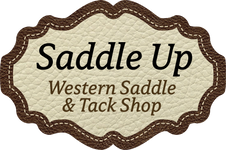Keeping Your Senior Horses Happy and Healthy
Posted by Lynnsy Johnson - Saddle Up on Dec 19th 2019
Did you know that 20% of the U.S. horse population is over the age of 20? Just like everything in life, as time goes on, our horses age. With age comes higher risks of colic, cushings, dental issues, weight loss, weight gain, or other medical issues. After a lifetime of blue ribbons, great memories, and a never ending bond, we want nothing more than to keep our senior horses happy and healthy. It can be hard to maintain a senior horse's weight or manage medical conditions, but here are a few tips that will hopefully help you out!
Calories and energy are huge contributors to a senior horse's diet. Depending on the horse's body condition, calories can be a benefit or it can be unhealthy for them. An older horse who is not active or overweight has lower energy needs than hard keepers who have trouble gaining weight. Hard keepers benefit from higher fat diets for extra calories to help them maintain their weight. Easy keepers or senior horse's who are overweight do better with a forage-based diet plus an added ration balancer.
A very important thing with keeping your older horses healthy is allowing them to have constant access to fresh water. This decreases their risk for colic. Water requirements will also increase with forage intake, especially during winter. Make sure their water is at a good temperature. Seniors tend to drink better when there is no ice and the water is slightly warm.
If you are noticing that your older horse is struggling to keep weight on, you can add certain supplements to help them. Common things used are beet pulp, senior feed, alfalfa cubes, or a fat supplement to increase calorie intake. It is always important to check with your vet first, just to make absolutely sure these things would be of benefit to your horse. Always remember to soak beet pulp and alfalfa cubes in water to avoid a choking hazard. Vitamin E, Omega-3 fatty acids, and/or joint supplements would also be good things to possibly add to your senior's diet.
With age comes dental problems. Older horses need their teeth checked more frequently than younger ones. They can develope gum diseases, infections, or just general dental issues which can then affect their eating and weight. If you notice your senior is having a hard time chewing, especially grain, it may be a good idea to have their teeth checked. A big indicator is if they are trying to chew their grain, but it just keeps falling out of their mouth, then they most likely have a dental problem going on.
I found a really cool article that I will attach at the bottom of this blog. It talks about "The 5 Golden Rules of Feeding Older Horses". It was very helpful and gave some great pointers so I thought I would include it.
1. Fiber First
Fiber is important at any age for good digestive help, however it really helps senior horses keep a healthy gut. As previously discussed, when horses get older it can be harder for them to chew. If you find they are struggling with their routine diet, try and find an alternative source of fiber that can easily be chewed and digested.
2. Feed according to condition
Most commonly, older horses have a hard time maintaining or gaining weight. However, there are some seniors who are overweight and it is really hard on them, especially if they have arthritis. People tend to over feed seniors because they are older, but it is important to feed them according to their condition. If they are an easy keeper, try not to over feed them and make sure they aren't gaining too much weight. If an old horse is too overweight, it can be really hard on their joints and it can also make it harder for them to get around. Keeping them at a happy healthy weight is important. If the horse is a hard keeper, then you want to make sure they have enough food. You also want to make sure they are getting the correct nutrients to help them gain their weight back at a healthy pace.
3. Take Aliments/Conditions into Consideration
Medical issues can play a huge part in what your senior needs in their diet. For example, a horse with liver problems requires a low protein diet. Horses prone to laminitis/cushings should be fed a diet with low starch and sugar levels under a specific point. Consult with your vet to see what your horse needs in their diet.
4. Choose Feed with Low Starch and Sugar
Choosing a feed with low starch and sugar is a more natural choice and it is easier to digest. Feeds that have cereals or molasses are higher in starch and sugar. This can cause horses to be more susceptible to developing laminitis or even colic.
5. Add Water
Adding water to a senior horse's grain can make it a lot easier for them to eat. A lot of grains or cubes can be a choking hazard if the horse has dental problems, so soaking it is a good idea. If your horse can't chew properly, it can increase their risk for colic. Adding water releases more flavors in the feed and it increases water consumption.
Our senior horses have been a huge part of our lives and they deserve to live out their lives happy. They can be difficult to maintain, so contact your vet with any changes or problems that you notice. We hope these tips help you out with your senior horse.
Happy Holidays!

https://www.allenandpage.com/5-golden-rules-feeding-older-horses/
(picture credit: http://www.mitavite.com/kb/feeding_older_horses_v2)
